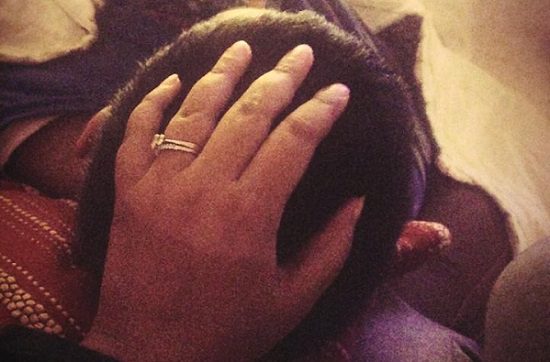
April 18, 2015 – Autism Awareness Month, Autism Truths #18
We are winding down our Saturday, me sitting on my bed banging this post out, and D chilling and winding down on the chaise lounge in my room, twirling his beads on an especially long piece of plastic. I’ll be asking him to relinquish his beads soon, as the final lapse toward sleepy time will be hard to come by if he keeps stimulating himself with the beads.
Between two soccer games for A and H, starting early this morning, an impromptu basketball game played with our neighbor’s children and their dad and a last minute cook-out on our deck, it’s been a busy-yet-lazy Saturday, full of ups and downs along the way. I travel from one end of the spectrum to the other with D, proud of him doing one thing this morning, worrying about him this afternoon.
Catching up on the happenings on social media shows me much of the same in Autism Land — the highest of the highs to the lowest of the lows. One friend of mine, who has a brother with autism, put up two updates today about difficulties and heartbreaks she and her brother faced while trying to do a few things out and about Washington, D.C.:
While I was paying for parking, *Mobeen stopped to hear a man play the saxophone. I turned for a second to press “get receipt” – then I heard the man yell “NO” and Mobeen screaming from fear.
Mobeen was holding the mans flag that was in the bucket, and the man pulled it away. Mobeen is at fault – No doubt!!
So i apologized and explained the situation. I also explained how he loves flags and he just wanted to touch it, not take it. I wouldn’t have allowed it.
Mans response: “I know disability -but He needs to learn not to touch the flag” “I could’ve been a crazy man”
I said: “but you’re not, so you should’ve been more understanding and tolerant”
Man: “are you trying to teach me? You need to teach him and control him. He shouldn’t be here if you can’t control him”
I held my tears, luckily I was wearing sunglasses. I looked at Mobeen and talked to him, since I could get more sense into him than the man. But as I was talking to Mobeen, two strangers went to the performer to comfort him and said,
– “Don’t bother with them, you are doing a great job”
– “They don’t understand how to respect the flag, they need to go back to their country”Has the flag become more important than what it represents?
Freedom, liberty, equality, respect, justice…..
Will Mobeen be treated this way for who he is and how he is?Patriotism is not about respecting the flag per se, it’s about respecting the individuals who the flag is for. The flag represents every American, regardless of race or religion. To disrespect an American with a disability – is a disrespect to the flag itself.
Then I read updates from friends where I live, who attended the first annual Central VA Autism Conference today in my hometown. At the end of the day, four young men with autism shared their stories. Three are sons of friends of mine. And, in a world where it seems like all to often others are speaking for those with autism, it was so uplifting and important for these young gentlemen to speak for themselves.
If D could speak for himself, do for himself, take care of himself, decide for himself, live for himself, determine for himself — this would be the greatest accomplishment, the greatest blessing, the greatest thing I could ever hope to see in my life. I share a lot of positive stories about D, because I feel it’s important to put forth the positive and try to create some level of understanding in the world’s community about how each step forward, each achievement, each thing learned is not to be taken for granted. About how we all need to learn to live together, support each other and lift each other up in the best ways possible.
But I share what is tough and heartbreaking, too. Because that is also the truth. And you need to know the whole truth.
What happened to Mobeen has happened to D. More times than I wish to remember. A particularly horrible incident in Georgetown Harbor in Washington, D.C. comes to mind, when a crowd gathered around us to gawk, whisper and stare while D had a bad meltdown and tried to bang his head against the concrete. I attempted to block him while instructing my youngest son and my niece to sit on a bench away from the commotion. I could hear some of them whisper — why did she bring him here? Can’t she control him?
And, as many times as I’ve attended conferences or lectures or spoken with families who have worked hard to help their children reach these inspiring levels of independence and lives lived as part of their community, I still worry incessantly that D will not have that kind of a life.
D is profoundly autistic. Profoundly. Eleven years after he was diagnosed, it still hurts to say those words out loud or type them out here. We in the autism community can argue and disdain labels all we want. We can tell each other that there is no timeline on progress, that individuals with autism learn at their own pace. We can work to instill pride in those who have autism and are aware that they are autistic. That is important. But, I know how D’s autism manifests for him — profoundly.
And so the truth is, even on the most even and benign and mundane of days, when D is just doing his own thing, it’s never even or benign or mundane. And it hurts.
*name changed to protect privacy of a child











